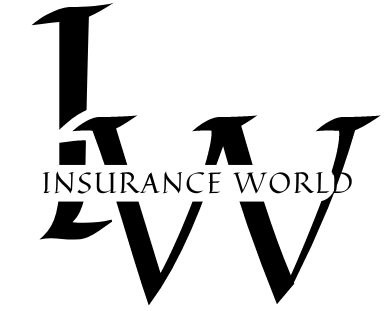Introduction:
Event insurance is a specialized form of insurance coverage designed to protect event organizers, hosts, vendors, and participants against financial losses and liabilities associated with organizing or attending events. Whether you’re planning a wedding, corporate event, concert, trade show, or festival, event insurance provides essential coverage for unforeseen circumstances that could disrupt or impact the success of your event. In this comprehensive guide, we’ll explore everything you need to know about event insurance, from understanding its importance to navigating coverage options and risk management strategies to ensure a successful and stress-free event experience.
- Understanding Event Insurance:
- Event insurance is a type of insurance coverage that provides financial protection for events against losses or damages resulting from unforeseen circumstances, including cancellations, postponements, property damage, liability claims, and other event-related risks.
- It covers a wide range of events, including weddings, parties, conferences, concerts, trade shows, festivals, fundraisers, and corporate events, offering tailored coverage options to meet the specific needs of event organizers and participants.
- Importance of Event Insurance:
- Financial Protection: Event insurance provides essential financial protection for event organizers, hosts, vendors, and participants against potential losses or liabilities arising from unforeseen events, such as cancellations, property damage, or liability claims.
- Risk Management: Event insurance helps mitigate risks associated with organizing or participating in events, ensuring that organizers and participants are adequately protected against the unpredictable consequences of event-related incidents.
- Peace of Mind: Event insurance offers peace of mind and security for event organizers, hosts, vendors, and participants, knowing that they are financially covered and prepared to handle any unexpected challenges or disruptions during the event.
- Types of Event Insurance Coverage: a. Event Cancellation Insurance:
- Event cancellation insurance provides coverage for financial losses incurred due to the cancellation, postponement, or abandonment of an event for covered reasons, such as adverse weather conditions, venue closures, or unforeseen circumstances.It reimburses event organizers for non-recoverable expenses, deposits, or lost revenues resulting from event cancellations or disruptions beyond their control.
- Event liability insurance provides coverage for third-party bodily injury, property damage, or personal injury claims arising from accidents, incidents, or negligence during the event.It protects event organizers, hosts, and vendors from legal liabilities and financial obligations resulting from lawsuits or claims filed by injured parties or property owners.
- Event property insurance provides coverage for physical damage to event property, equipment, furnishings, decorations, and other materials used in the event.It covers repair or replacement costs for event property damaged or destroyed by covered perils, such as fire, theft, vandalism, or natural disasters.
- Event interruption insurance provides coverage for financial losses resulting from the interruption, postponement, or cancellation of an event due to covered reasons, such as adverse weather, power outages, or equipment failures.
- It reimburses event organizers for lost revenues, additional expenses, or non-recoverable costs incurred as a result of event interruptions or disruptions.
- Factors Affecting Event Insurance Premiums:
- Event Type: The type of event, including its size, scale, duration, location, and activities involved, can impact event insurance premiums, with higher rates for larger, higher-risk events.
- Coverage Limits: The coverage limits selected by the event organizer or host can influence event insurance premiums, with higher coverage limits resulting in higher premiums.
- Participant Count: The number of participants, attendees, vendors, or performers involved in the event may affect event insurance premiums based on the perceived risk of accidents, injuries, or property damage.
- Venue Requirements: Some event venues may require event organizers or hosts to carry specific types or levels of insurance coverage, which could affect event insurance premiums.
- Selecting the Right Event Insurance Coverage:
- Assess Event Risks: Evaluate the specific risks and exposures associated with the event, including factors such as venue, weather conditions, activities, and participant demographics, to determine the appropriate coverage needs.
- Review Policy Options: Research and compare event insurance policies from multiple insurers, reviewing coverage options, premiums, deductibles, and policy terms to find the best fit for your event.
- Customize Coverage: Tailor your event insurance coverage to meet your unique needs and preferences, considering factors such as event type, venue requirements, coverage limits, and participant count.
- Coordinate with Vendors: Communicate with event vendors, suppliers, performers, and other participants to ensure that their insurance coverage aligns with the event’s requirements and complements your own coverage.
- Risk Management Strategies for Event Planning:
- Contractual Agreements: Obtain written contracts or agreements with event vendors, suppliers, performers, and other participants to clarify insurance responsibilities, liability waivers, and indemnification clauses.
- Emergency Preparedness Planning: Develop and implement an emergency preparedness plan for the event, including contingency plans, evacuation procedures, medical assistance, and communication protocols.
- Security Measures: Implement security measures, crowd control measures, and access controls to ensure the safety and security of event attendees, participants, and property.
- Event Safety Protocols: Establish safety protocols, guidelines, and procedures for event activities, such as stage performances, recreational activities, food service, and alcohol consumption, to minimize risks of accidents or injuries.
Conclusion:
Event insurance is an essential risk management tool for event organizers, hosts, vendors, and participants, providing financial protection against the unpredictable risks and liabilities associated with organizing or attending events. By understanding the importance of event insurance, selecting the right coverage options, and implementing effective risk management strategies, event stakeholders can ensure the success, safety, and security of their events. With comprehensive event insurance coverage in place, organizers and participants can focus on enjoying the event experience with confidence and peace of mind, knowing that they are financially protected against unforeseen challenges or disruptions.

